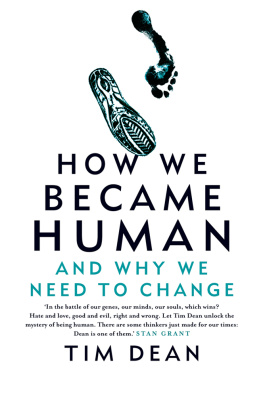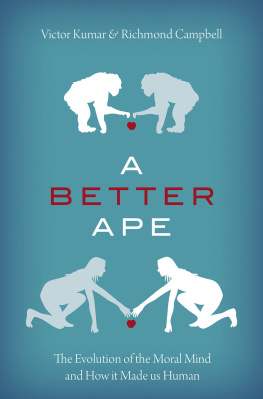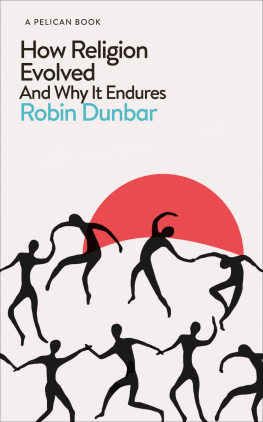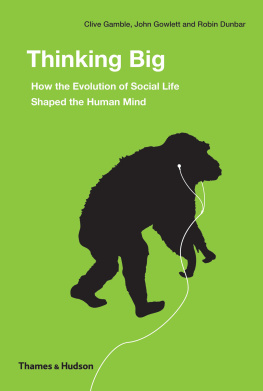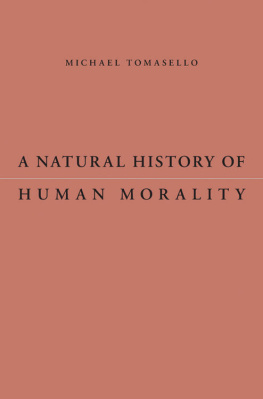About How We Became Human
Over thousands of years, humans have developed mechanisms to help us live together in ever-larger social groups. We developed a set of moral emotions such as empathy, guilt and outrage, as well as a tendency to favour people in our in-groups and a propensity to punish perceived wrongdoers. Our culture also evolved, giving us powerful tools like religion and politics that could expand community sizes and maintain moral order.
While these mechanisms served our ancestors well, though, our evolved sense of right and wrong is out of step with the modern world. Social media can turn outrage into an addiction, gender equality is still hampered by caveman thinking, and implicit bias turns to explicit oppression. How do we separate whats natural from whats right? How can we reshape our thinking to thrive in the modern world?
Here one of Australias brightest philosophers charts the evolution of morality from the first humans to today, and shows us how we can turn towards a better future.
Praise for How We Became Human
In the battle of our genes, our minds, our souls, which wins? Hate and love, good and evil, right and wrong. Let Tim Dean unlock the mystery of being human. There are some thinkers just made for our times: Dean is one of them. Stan Grant
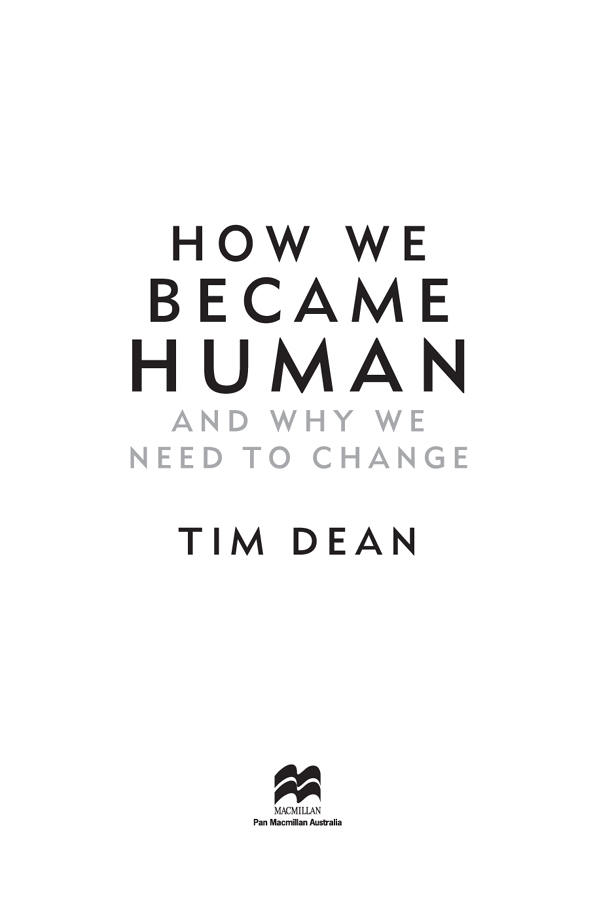
In memory of my father, Alan Dean.
Your voice lives on.
Contents
Chapter One
Moral baggage
It is said that were a philosopher to write a murder mystery novel, the opening line would say: In this novel, I will show how the butler did it. While I would dearly love to make this book the kind of page turner that has you second-guessing the big reveal until the final pages, Im going to reluctantly follow the customary philosophical approach and give you the punchline up front: the way we have evolved to think about morality is out of step with the modern world.
So, what does our evolutionary history have to do with hot-button modern issues like racism, sexism, online outrage, religious intolerance and political partisan warfare that Ill discuss in the following chapters? The short answer is: more than you might think. The longer answer is that these and a slew of other major societal challenges are, at least in part, byproducts of human minds that evolved in a world radically different from the one in which we live today.
If we want to resolve these issues, we cant rely on our moral intuitions alone, or even the moral baggage left to us by our distant ancestors they packed for a different world. We will sometimes need to push back against our nature and remake morality for ourselves so that it fits with the modern world. And we have to keep remaking it as long as the world keeps changing.
Theres a lot to unpack there, and Ill be stepping through each of these moral challenges in turn and looking at how we might remake morality to respond to them. But first, I want to explain what I mean when I say evolution has left us out of step with the modern world.
Mismatch
Our species is unremarkable in a lot of mundane ways, but were also unique in a few remarkable ones. On the one hand, were just another member of the family of warm-blooded mammals that grow fur, produce milk and have three bones in the middle ear. So far, so much like a marmot. But one thing that sets us apart from our furry cousins is our unparalleled ultra-social nature. There is simply no other animal on this planet that lives and cooperates with unrelated members of its own species to the extent that we do.
Certainly, there are other social animals: fish school; wolves hunt in packs; and bees create mighty hives. But scratch the surface and these examples of sociality turn out to be fundamentally different from our own, resting more on self-interest than on any genuine magnanimous spirit. Even the bees that make the ultimate sacrifice for the sake of the hive are still acting in their genetic self-interest by protecting their closely related kin.
We are different. We dont help just our close genetic relatives (although we do tend to favour them above others hence nepotism, derived from the Latin word for nephew), and we dont band together just because it benefits us. We have an innate tendency to cooperate with unrelated individuals, even strangers. When I give lectures on this topic, I invite students to picture what the theatre would look like if it were filled with chimpanzees rather than people. The picture that emerges is one of sound and fury, with items of dubious hygiene being flung around the room. The very fact that the students can sit there quietly listening, refraining from causing distractions or hurling objects at each other (most of the time) is a testament to what sets us apart from even our closest hominid relatives.
Its this ultra-social nature that has enabled our species to spread across the world, creating a globalised society. Just consider what goes into producing your morning coffee (or tea, if youre better at achieving a fully awakened state in the morning than I am). First, there are the coffee growers, who could be working on a plantation on the other side of the planet from where you live. Then there are the workers who pick, process and then mill the berries. Another cohort is responsible for transporting the beans to a port and shipping them to a roaster, who then ships them on to your local barista or supermarket as coffee grounds or, heaven forbid, transforms them into instant coffee.
Were already talking hundreds, if not thousands, of people who have come into direct contact with the very beans you consumed. We can increase that number at least tenfold to include all the people who enabled them to do their jobs, from equipment manufacturers to road workers to government bureaucrats. All those people working together just to produce one cup of coffee. Bee hives and schools of fish are no doubt impressive examples of animal coordination, but neither of those species has yet mastered global logistics.
Something else that sets our species apart is our disproportionately large brains. The size of our brains and our social nature are intricately connected. This is because navigating the social landscape takes a great deal more mental horsepower than just figuring out our way around the physical world. Its one thing to know where the good watering holes and fruiting trees are; its another thing entirely to be able to parse a single sideways glance from an attractive person across the room or a backhanded compliment from a rival. These ambiguous social exchanges might seem fairly trivial to us today, but for our distant ancestors they could have life-or-death consequences. If the sideways glance was an invitation to mate, or the backhanded compliment was the beginning of a power play, it could have a significant impact on whether their genes made it to the next generation.
Over time, survival depended on building strong social bonds, identifying cooperative opportunities, avoiding the threats of cheating and freeloading, as well as the ability to regulate behaviour so our ancestors could maintain a relatively harmonious social life. The tremendous importance of our social intelligence sparked a runaway evolutionary surge that favoured ever-larger brains, to the point where our cognitive capacities are orders of magnitude more sophisticated than those of even our most closely related primate cousins, chimpanzees and bonobos.

